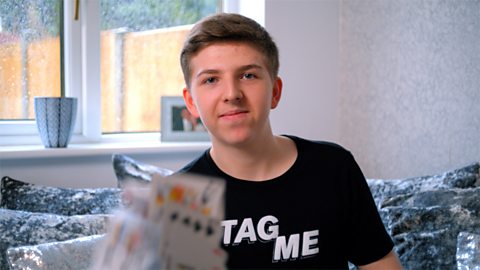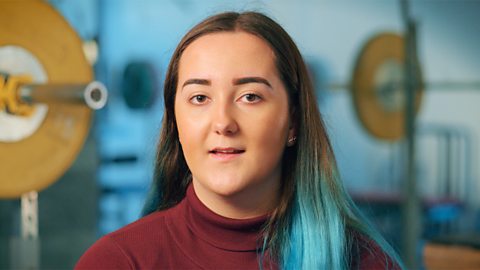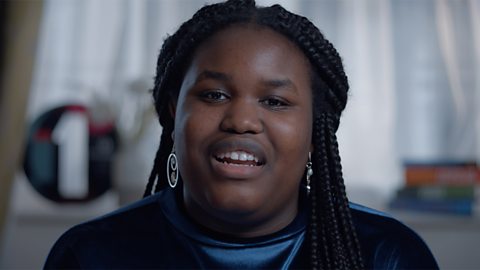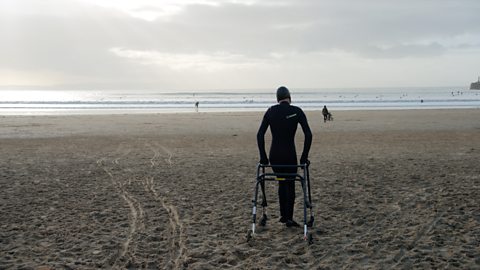Mjd:
My name is Mjd, and I am from Syria. I moved to the UK in 2015. It was completely to my country. First of all, the culture, and the weather, like, everything. It's really hard to communicate with people. Learning English was really difficult. I kept feeling if I don't study the language, I would never be able to make friends and socialise with people. So, in my brain was just study, andget the language as fast as you could to communicate and make friends.
Even though I was Syria and I was the top in my class, I came to the UK, and being actually the bottom. But I kept trying, because I knew that phrase, you might fail once, twice, and three times, even 50 times, but then you will achieve what you're trying to do. I learned English by studying at home, and my dad's friend helped me, as I used to wake up around 6:30am just to study that one hour with him, and that really helped me as a start. Also, I used to stay from 2:30 till 3:30 for English additional language.
And sometimes, I stay even further with a teacher that teaches math and English. At the start, my friend used to help me. I've got a friend that speaks Arabic as my language, so he used to un–interpret for me the basics of what the subjects meant, and I'm returning the favour back, because I kept studying on myself till–until I improved myself, and learned full course how to be interpreter. I felt like from the inside that I'm returning the favour back, as people used to interpret for me, and now I'm actually helping other people,especially families and younger kids. I really feel good when I see someone I've interpret for and helped getting better in English, because that makes me feel that I've achieved something to make that student engaging with their community, and the school, to socialise with people.
So, for me to interpret for him and the beginning, and now he could develop himself, and interpret for others. So, it was just, like, recycling, returning the favour back, and just, like, a really nice emotion thing in my heart, because I've been through all of that in the past, and when you improve you–, language by people helping you, it's, like, as they achieved, you achieved, you know. To keep my mind healthy, I learn new things and share it with others. It's really important to learn from other people, because a person is never perfect. So, by studying everyday and then–, and take other people's advices, such as teachers, you still grow your mind and you're learning. So, just keep learning for yourself. It's really important to be kind and helpful for other people, because helping other people will make you feel happy from the inside.
And also, when you help other people, these people will remember that I've been already helped, so why should I not help other people, which makes it a cycle that when they grow, they keep helping other pupils, and that will continue forever, because one day, you might need this help from that person.
Video summary
In this short film Mjd explains how he used a growth mindset to learn English, and how he 'gives to others’ by translating for his classmates and helping them learn.
Teacher Notes
When you give to others, it helps you to feel good too. Giving helps you to have a sense of purpose and belonging, and being kind can signal the brain to release ‘feel good’ chemicals.
Using the film
This is one of five filmed interviews about wellbeing and developing a growth mindset.
They can be shown in any order and are designed to encourage students to think about their own wellbeing, and how they can learn to build good habits to support their mental health and develop a positive attitude.
Classroom Ideas
This short film could be used to start a group discussion about a time that someone did something really kind for them and a time that they did something for someone else. How did it make them feel?
Explore the idea of ‘paying it forward’. Does being kind make other people more likely to be kind too?
Ask pupils to list different ways in which we can give to others.
Write a newspaper article about someone you feel gives to others.
Investigate people in history who gave to others, such as Edith Cavel, Florence Nightingale, Harriet Tubman and Thomas Barnardo.
Dan - Connect with others. video
Dan has Asperger Syndrome, also known as Asperger's, and sometimes finds it difficult to connect with people. In this short film he shares his experiences of learning magic, using his growth mindset, and using magic tricks to help him connect with other people.

Kristana - Be active. video
In this short film Kristana explains how weightlifting has helped her to feel better about herself, develop confidence in school and overcome challenges.

Rachel - Take notice. video
In this short film Rachel shares how she takes notice of the issues that are happening around her and how she tries to make a positive change.

Ethan - Keep learning. video
Ethan has cerebral palsy, a medical condition that affects his movement and coordination. He's also an adaptive surfer and is training to go to the world adaptive championships in California. In this short film Ethan shares his experiences of using a growth mindset to learn new things.
